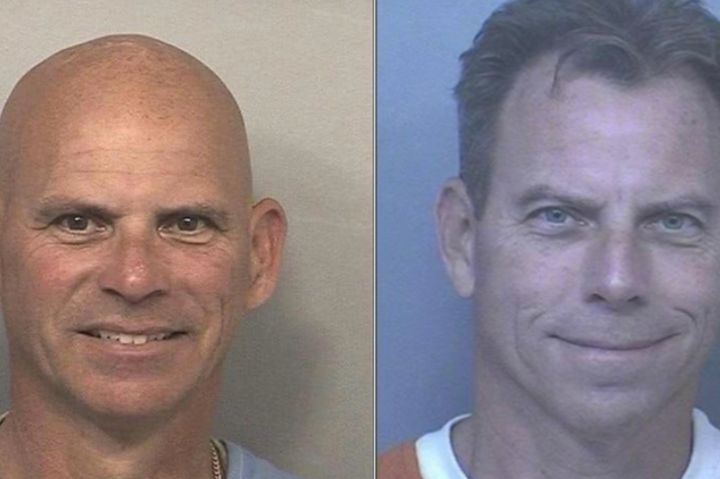After more than three decades in prison, Erik and Lyle Menendez could be on the cusp of freedom. The Los Angeles County District Attorney, George Gascón, is set to make a major announcement this week that could redefine one of America’s most notorious cases. Sources say the DA’s office is considering a re-sentencing motion, a move that has filled the brothers’ family with a renewed sense of hope that “justice is finally here.” If things move forward as anticipated, the Menendez brothers—now 53 and 56—could walk free within weeks.
This twist comes on the heels of shocking claims from Roy Rossello, a former member of the popular 1980s band Menudo, who says Jose Menendez, the brothers’ father, molested him when he was a teenager working with Jose in the music industry. These allegations have re-ignited long-standing questions about the Menendez case, as Erik and Lyle have always maintained that years of horrific abuse from their father and the indifference of their mother drove them to kill. At their 1996 trial, however, much of the abuse testimony was dismissed, and the brothers were ultimately convicted of murder—a decision that sentenced them to life without parole.
Family members say this may be the moment to right a historic wrong. According to reports, Gascón has personally invited relatives to attend the press conference, and their optimism is growing that the DA may pursue a re-sentencing based on charges of voluntary manslaughter instead of murder. This would reflect years of missed considerations about the trauma the brothers endured as teenagers—a factor which, if accepted, would make them eligible for immediate release, having served far beyond a manslaughter sentence. Should they receive a new trial with these charges, a conviction of voluntary manslaughter would mean the brothers’ immediate release, as they have already served more than the maximum sentence for such a crime.
The Menendez case, infamous since it first gripped the nation in the early 1990s, has seen renewed interest thanks to recent Netflix documentaries unpacking the complex and disturbing story behind the murders of Jose and Kitty Menendez. The August 1989 killings rocked Beverly Hills, as the well-heeled Menendez family seemed to embody the very image of wealth and success in America. The brothers, only 18 and 21 at the time, claimed they found their parents shot dead in their luxurious Beverly Hills mansion upon returning from a night out. Their panicked call to police set off a media frenzy, heightened by chillingly lavish spending sprees that followed just weeks after their parents’ deaths.
Within months of the killings, Erik and Lyle were living a lifestyle that seemed to contradict their defense. Police revealed the brothers had gone on a spending spree totaling $700,000, funded by their inheritance. Lyle splurged on a Porsche Carrera, Rolex watch, and even invested in two restaurants, while Erik hired a tennis coach to compete in tournaments. To some, this behavior was proof of guilt; prosecutors argued that greed was the true motive, and that the brothers, desperate for a piece of their parents’ $14 million estate, fabricated their abuse claims as a defense.
Erik, who recently opened up about the ordeal in a new documentary, reflected on the toll of those years, saying, “Everything I bought was just a cover-up for a pain I didn’t want to deal with.” Erik admitted that he and his brother may have seemed indulgent, but insisted it was simply a way to distract themselves from overwhelming grief and trauma. “There was no joy, just numbness,” he added, explaining that he even contemplated taking his own life after the murders. “One of the things that stopped me from killing myself was that I’d be a complete failure to my dad,” he said, sharing an internal struggle that only deepened with time.
The original trial also brought to light painful and traumatic moments between the two brothers. Lyle shared with the court that he, too, had felt a twisted compulsion to inflict abuse on his younger brother, carrying forward the cycle of harm started by their father. “I remember when he apologized to me on the stand for molesting me,” Erik recounted. “That was a devastating moment for me. He had never said he was sorry before.”
Gascón’s team has not officially committed to a decision, but his recent interest in revisiting the evidence—including Rossello’s testimony—suggests that the Menendez brothers might finally see a day in court where their full story can be heard. It remains to be seen if a retrial would bring new insight or if their claims of abuse will garner the understanding that was largely missing from their first trial. But should Gascón pursue a lesser charge, this could bring an end to the long, complex, and polarizing saga of the Menendez brothers, allowing them the chance to start fresh after 30 years.
Public opinion, however, remains sharply divided. Some see the brothers as victims of unimaginable abuse who acted out of desperation, while others view their spending spree and the brutality of the crime as damning evidence of guilt and greed. If Erik and Lyle Menendez are indeed re-sentenced and released, one thing is certain: their story will once again dominate headlines, reigniting debates on justice, trauma, and the murky, painful intersection between the two.












